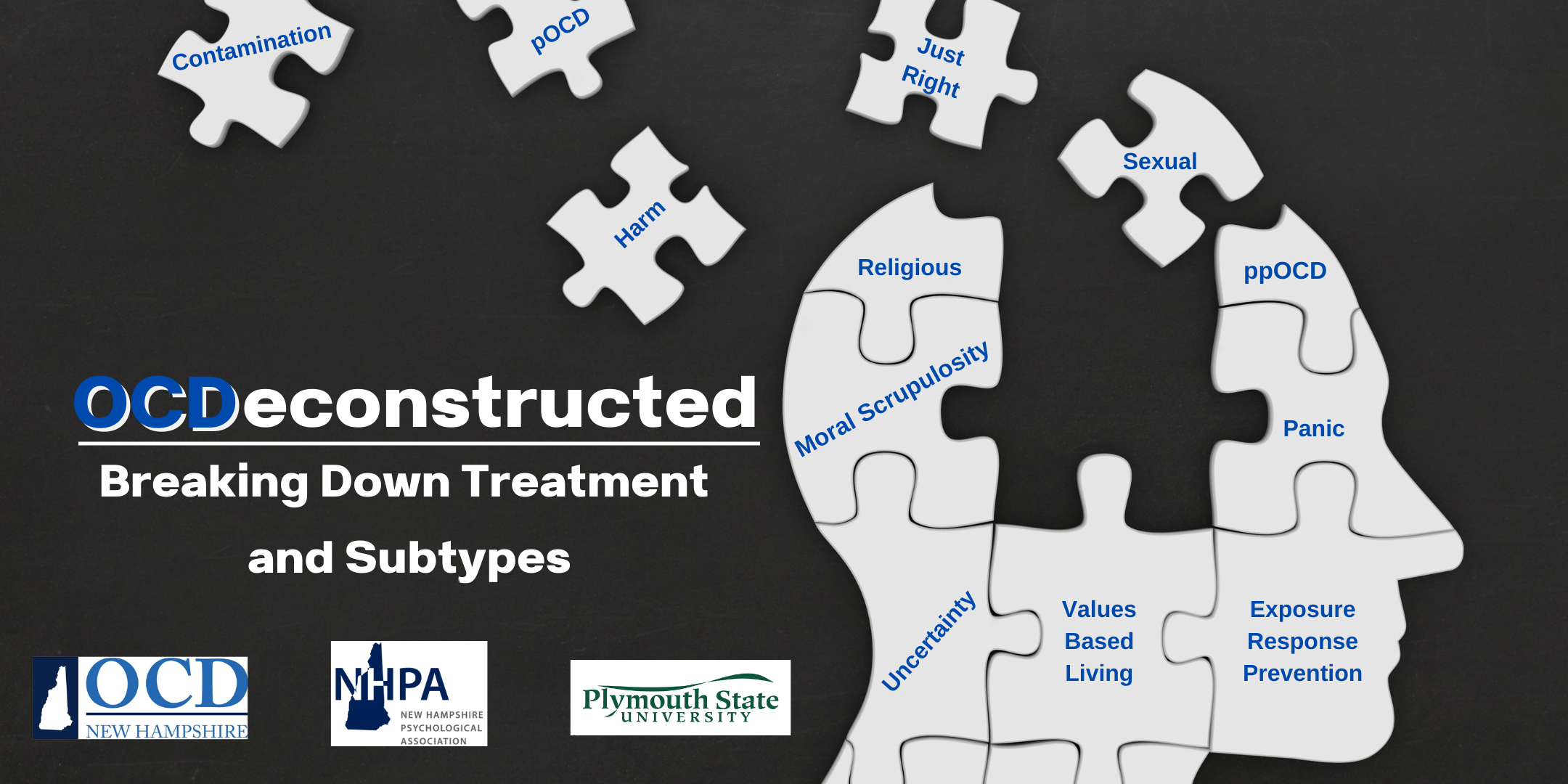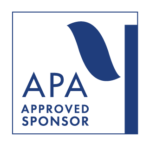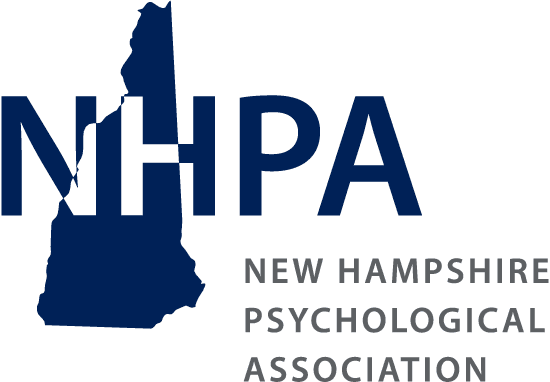This Program is Co-Sponsored with OCD New Hampshire

Plymouth State University Merrill Place
14 Merrill St. Plymouth, NH
Friday October 14th, 2022 8:30am-4:30pm
6 CEs
Description of Event:
NH OCD is presenting a 1-day workshop, entitled: OCDeconstructed: Breaking Down Treatment and Subtypes. The 3-hour morning portion of the workshop will focus on assessment and diagnosis of OCD as well as other related disorders. The morning portion will be a lecture format and emphasize how OCD presents in different settings. Participants will also be introduced to treatment modalities and how OCD treatment is different from other modalities they may be familiar with.
After lunch, the afternoon will focus upon case presentations, so that the audience can further learn how OCD presents and how to differentiate OCD from other diagnoses. Participants will then work in small groups to develop an initial plan of treatment for the client, with the support of the various presenters. The session will end with a panel discussion of OCD clients and their family members.
Learning Objectives:
1. List the DSM-5 criteria for Obsessive Compulsive Disorder (OCD) and identify at least 3 ways OCD presents clinically in diverse settings such as private practices, emergency rooms, and local mental health agencies.
2. List and differentiate the DSM-5 criteria from that of OCD for at least 4 of the 6 related similarly presenting disorders:
a. Health Anxiety Disorder
b. Emetophobia
c. Trichotillomania
d. Excoriation Disorder
e. Generalized Anxiety Disorder
f. Delusional Disorders
3. Describe at least three “gold standard” treatment interventions available for OCD including Exposure and Response Prevention (ERP), Acceptance and Commitment Therapy (ACT), Cognitive Behavior Therapy (CBT).
4. Identify at least 3-5 pros/cons of adjunctive treatment methods including, but not limited to, psychiatric medication, evidence-based supplements, and dTMS.
5. Describe at least 2 situations in which it is not clinically indicated to begin ERP treatment; describe at least two different approaches for a “treatment-resistant” or “treatment-refractory” case and describe at least two different approaches to mitigate Treatment-Interfering Behaviors (TIBs).
6. Demonstrate an ability to formulate at least one treatment termination or transition of care plan (including how to work with collateral providers) and develop at least one relapse prevention plan for clients.
7. Describe how a client’s OCD can impact family members and identify at least two ways to incorporate family members as an integral part of a client’s treatment.
About the Presenter:
Jayme Valdez, MA, LMHC, is a licensed mental health counselor specializing in Obsessive Compulsive and Related Disorders with a particular focus on treating taboo and bizarre mental intrusions, “treatment-resistant” cases, the high comorbidity of OCD and self-medicating behaviors, as well as issues specific to the LGBTQIA+, Persons of Color, and other underserved communities. Ms. Valdez places a high value on educating the community at large, including medical facilities, doctors, nurses, other clinicians, persons living with OCD, and their family members about the myriad ways OCD can present and affect not only the person experiencing symptoms but their loved ones and the extended community as well. Ms. Valdez works directly with various organizations to create strategic plans focused on systemic reform of OCD conceptualization with an emphasis on strengthening diagnostic abilities and improving the efficacy and availability of evidence-based treatments for those living with OCD.
As a highly skilled clinician, educator, and trainer, Ms. Valdez’s career spans two decades of work as a licensed mental health counselor, state certified domestic batterer interventionist, case manager for homeless communities, and a state certified rape/sexual assault/molestation/incest abuse counselor. Ms. Valdez is currently the owner and founder of the first outpatient OCD and Related Disorders clinic in Central Massachusetts. As the Clinical Director of Clearview OCD Counseling, LLC, she manages a small team of clinicians trained in ERP, ACT, and other evidence-based techniques. Ms. Valdez also serves on the Board of Directors for OCD Massachusetts and previously served on the Board of Directors for OCD Rhode Island. She is an active member of the International OCD Foundation and volunteers much of her time to community lectures and trainings on OCD awareness.
Additional presenters and group facilitators include:
Christina Ennabe, MA, LCMHC, Kelsey Irving, MA, LPC, Elian Beattie, MA, LCMHC, Rebecca Rouse, Psy.D.
Panel participants to be announced.
Register: https://www.eventbrite.com/e/ocdeconstructed-breaking-down-treatment-and-subtypes-tickets-405856326197
 This program is co-sponsored by the New Hampshire Psychological Association (NHPA) and OCD New Hampshire. NHPA is approved by the American Psychological Association to offer continuing education for psychologists. NHPA maintains responsibility for this program and its contents.
This program is co-sponsored by the New Hampshire Psychological Association (NHPA) and OCD New Hampshire. NHPA is approved by the American Psychological Association to offer continuing education for psychologists. NHPA maintains responsibility for this program and its contents.
